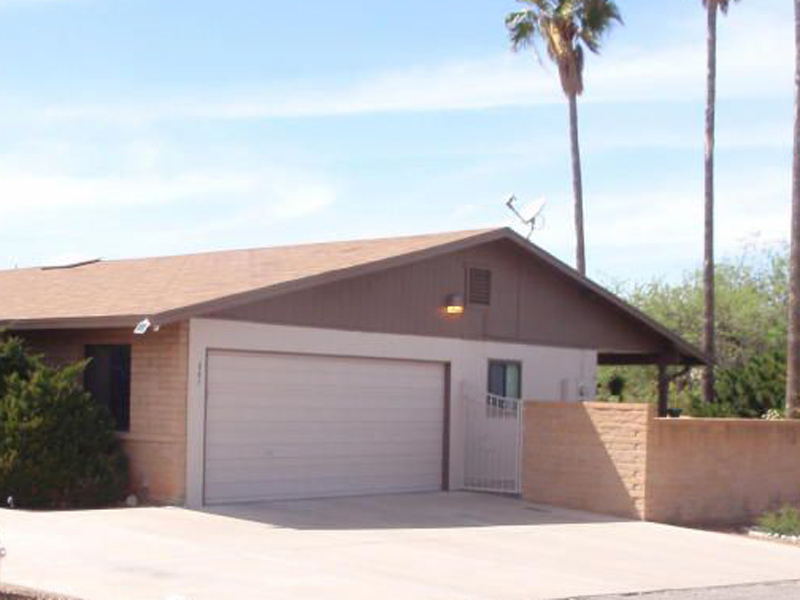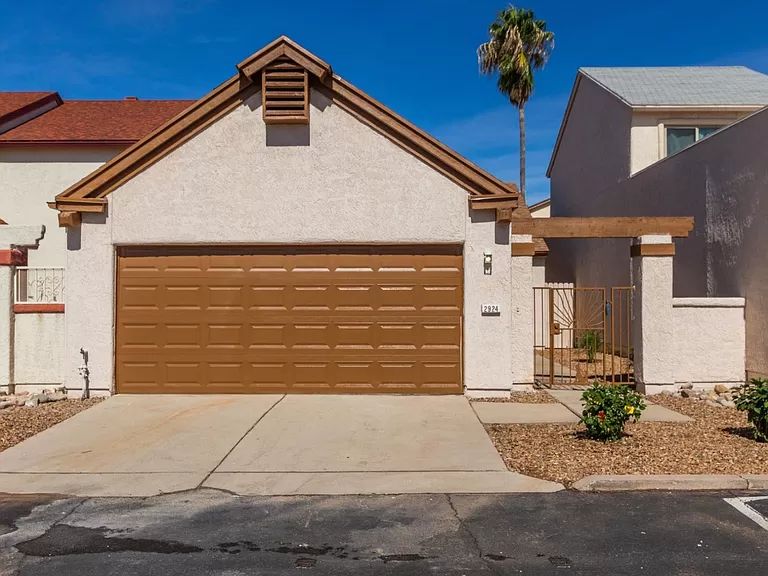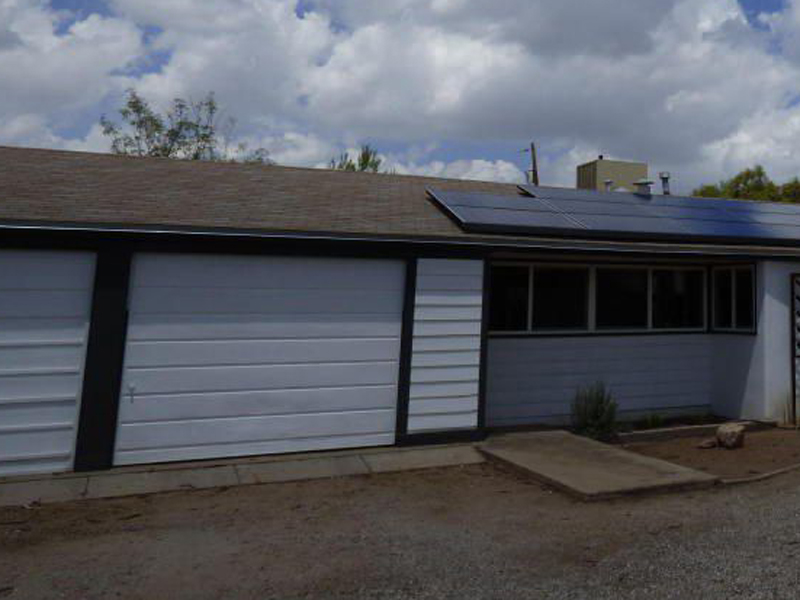Broken Garage Door Opener - Fix It Yourself Overview
Is Your Garage Door Stuck? Below's What to Do Very first
When your garage door will not open, start with these essential security checks prior to trying any type of repairs. Initially, guarantee nobody is standing near the door and that vehicles are clear of the opening. Try to find evident indicators of damage like damaged panels, bent tracks, or hanging cables. If you see a snapped springtime or severely damaged components, quit immediately and call a professional—-- these repair work require customized devices and proficiency to handle securely.

Check These 6 Points Prior To Calling a Professional
Prior to presuming you need expensive fixings, go through this quick analysis checklist that addresses most garage door issues:
-
Source of power: Validate the opener is plugged in and the electrical outlet is working
-
Remote batteries: Change dead batteries in your remote
-
Hand-operated lock: Inspect if someone accidentally involved the hand-operated lock
-
Blockages: Search for particles obstructing the door's path or sensing units
-
Emergency situation release: Guarantee the red emergency situation cord hasn't been drawn
-
Circuit breaker: Verify the garage circuit hasn't stumbled
These easy checks fix about 70% of garage door issues without needing expert treatment.
10 Typical Factors Your Garage Door Won't Open
Understanding why your garage door opener isn't functioning helps you pick the best option. Here are the most regular reasons home owners experience:
Dead remote batteries represent the simplest solution—-- when batteries die, the remote can't send signals to the opener. Power interruptions or tripped breakers cut electricity to the electric motor. Busted springtimes stop the door from raising properly and require prompt specialist interest. Sensor imbalance reasons security systems to obstruct door operation. Track blockages stop rollers from moving efficiently. Motor overload triggers automated shutoffs when the opener spots resistance. Limitation button troubles perplex the opener regarding door position. Cord damages disrupts the training mechanism. Weather-related issues affect door motion throughout severe temperature levels. Element wear from age gradually lowers system performance.
Trouble # 1: Dead Remote Batteries
When your wall surface button works but your remote does not, dead batteries are normally the perpetrator. Many garage door remotes use either 3-volt lithium or 12-volt alkaline batteries. Get rid of the back cover of your remote and examine the battery type. Replace with fresh batteries and test the remote. If it still does not work, you may require to reprogram it to your opener. Consult your opener's manual for details reprogramming directions, as the process differs by manufacturer.
Trouble # 2: Power Supply Issues
Garage door power problems often come from loosened links or tripped circuits. Examine that the opener is strongly linked into its outlet—-- vibration can loosen links with time. Test the electrical outlet with another device to confirm it's functioning. Analyze your home's breaker box for tripped circuits, especially if you have actually experienced tornados or power changes. GFCI electrical outlets may have tripped and require resetting. If the opener has power however will not respond, the issue most likely lies elsewhere in the system.
Issue # 3: Broken or Damaged Springs
Busted garage door springtimes are amongst the most dangerous parts to handle. If you hear a loud bang from your garage or see the door feels extremely heavy when attempting to lift manually, a springtime has likely snapped. Torsion springs run horizontally over the door, while extension springtimes rest on either side. Never ever try springtime fixings yourself—-- these parts save tremendous tension that can cause severe injury or death. Specialist substitute typically costs $150-$300 yet ensures your security.
Trouble # 4: Blocked Safety And Security Sensors
Modern garage doors include safety sensing units that avoid closure when items are found. These sensors can stop the door from opening if they're filthy, misaligned, or obstructed by debris. Clean sensing unit lenses with a soft fabric and guarantee absolutely nothing obstructs the undetectable light beam in between them. Check that sensing units are correctly lined up—-- the majority of have indicator lights that reveal link condition. Sensing unit troubles usually settle with straightforward cleaning and modification.
Problem # 5: Track Obstructions or Damage
Garage door tracks guide rollers as the door goes up and down. Dirt, debris, old grease, or little things can jam the system. Inspect tracks visually and eliminate any kind of blockages with a brush or towel. Search for dents, flexes, or bending that can hamper smooth procedure. Minor track modifications are feasible for handy house owners, but substantial damage calls for specialist fixing to prevent more issues or safety and security risks.
Trouble # 6: Garage Door Opener Electric Motor Issues
When the garage door electric motor runs but the door does not relocate, numerous issues could be responsible. The electric motor might be overwhelmed and shutting off as a precaution. Gear wear, especially in older units, can prevent correct procedure. Chain or belt drive issues affect power transmission. If you listen to uncommon grinding, clicking, or humming noises, quit making use of the opener right away. Electric motor fixings usually set you back greater than substitute, specifically for units over 10 years old.
Step-by-Step DIY Troubleshooting Guide
Follow this organized strategy to garage door fixing while focusing on safety throughout the procedure:
Step 1: Test the wall button first. If it works however the remote doesn't, focus on remote problems. If neither works, check power supply.
Step 2: Analyze the manual release cord. If it's been drawn, the opener is disengaged from the door. Push the trolley back to reconnect.
Action 3: Manually check the door by disengaging the opener and trying to raise the door by hand. It must relocate smoothly and stay in area when half-open.
Tip 4: Check visible parts for damage, paying special focus to springs, wires, and tracks.
Step 5: Examine all security functions consisting of sensing units, limit buttons, and auto-reverse features.
Step 6: Examination various controls (remote, wall surface button, keypad) to isolate the problem resource.
Constantly wear shatterproof glass and job gloves when executing examinations, and never attempt repair services on springs or high-tension parts.
When to Call an Expert vs. do it yourself Solutions

Recognizing when to call a garage door specialist versus trying do it yourself fixings secures both your security and your purse. Deal with these concerns yourself: dead remote batteries, power supply problems, minor track cleaning, sensing unit cleaning and positioning, and standard lubrication.
Never attempt these fixings on your own: spring substitute or change, cord fixings, significant track realignment, electric circuitry problems, opener motor replacement, or any type of repair involving high-tension components. Specialist professionals have specialized tools, training, and insurance policy to take care of harmful repairs safely.
Think about repair expenses versus substitute expenses, particularly for doors over 15 years of ages. Modern garage doors use better security features, energy efficiency, and integrity than older models.
Emergency Situation Garage Door Solutions
When you're stuck to a garage door that won't open and require immediate gain access to, adhere to these emergency situation treatments:
Guidebook Operation: Draw the red emergency situation release cord to disengage the opener. This permits hands-on operation yet needs proper method to avoid injury. Lift the door gradually and evenly, using leg muscle mass instead of your back. The majority of household doors consider 100-150 extra pounds, making them manageable for most grownups.
Momentary Repairs: If the door opens manually but won't keep up, prop it open with sawhorses or clamps—-- never ever utilize your body or vehicles as assistances. For doors that will not shut completely, guarantee the opening is secured if you have to leave.
Emergency Service: Numerous garage door business provide 24/7 emergency solution for situations entailing safety problems, trapped lorries, or total system failings. While more pricey than routine service calls, emergency repairs give instant solutions when needed most.
Safety Caution: What NOT to Do
Garage door safety and security calls for comprehending harmful repairs that should never ever be tried by property owners:
Never ever try to repair springs—-- they store sufficient energy to trigger fatal injuries when they snap or are poorly dealt with. Do not force a stuck door—-- this can harm the opener, tracks, or door panels, developing a lot more expensive problems. Stay clear of bypassing safety functions—-- sensors and auto-reverse systems protect against major injuries and residential property damages.
Don't overlook unusual noises—-- grinding, scuffing, or banging sounds show issues that worsen with time. Never ever utilize the door if wires are frayed or damaged—-- the door might fall unexpectedly. Do not try electrical repair work unless you're a qualified electrical expert—-- garage door openers utilize both 120V house existing and low-voltage control circuits.

Preventative Upkeep to Avoid Future Issues
Normal garage door maintenance avoids most typical troubles and expands system life expectancy dramatically:
Regular monthly Tasks: Aesthetic assessment of all components, evaluating auto-reverse safety features, checking and tightening hardware, and cleaning tracks and sensing units.
Quarterly Jobs: Oiling all relocating get rid of suitable garage door lubricating substance, screening guidebook operation, and inspecting climate sealing.
Yearly Tasks: Professional evaluation and tune-up, springtime modification if needed, and opener upkeep consisting of belt or chain modification.
Seasonal Tasks: Getting ready for weather extremes, inspecting insulation, and changing opener settings for temperature level adjustments.
Regular upkeep prices much less than emergency situation repair work and makes certain trustworthy operation year-round.
Garage Door Will Not Open Up FAQs
Why won't my garage door open with the remote yet collaborates with the wall surface button?
This typically suggests dead remote batteries, signal interference, or the demand to reprogram the remote. Inspect batteries initially, then consult your opener manual for reprogramming instructions.
Can I manually open my garage door if the power is out?
Yes, draw the red emergency launch cable to disengage the opener, after that raise the door manually. Be gotten ready for the door's complete weight and lift with correct technique to stay clear of injury.
Just how do I understand if my garage door spring is broken?
Signs consist of a loud bang from the garage, the door feeling extremely hefty when lifting manually, visible voids in the springtime coils, or the door only opening a few inches prior to quiting.
Is it secure to utilize my garage door if it will not open up right?
No, partial operation indicates mechanical troubles that could aggravate unexpectedly. Stop making use of the door and have it evaluated by a professional to stop further damages or injury.
What should I do if my garage door opens up but will not close?
Examine safety sensors for blockages or misalignment, check out the tracks for particles, and check the auto-reverse feature. If these do not address the issue, get in touch with a specialist.
Just how much does it cost to repair a garage door that won't open?
Expenses differ commonly relying on the issue: battery replacement ($5-$10), expert diagnosis ($50-$100), springtime substitute ($150-$300), or opener substitute ($200-$500).
Can weather affect my garage door's capacity to open?
Yes, severe cold can enlarge lubes and affect metal parts, while warmth can trigger expansion concerns. Many problems solve as temperature levels stabilize, but persistent concerns might need specialist attention.
Why does my garage door open a couple of inches then quit?
This usually suggests broken springs, limit button troubles, or track blockages. The opener's safety functions stop operation when resistance is found, protecting against damages to the motor or door.
Get Expert Aid for Complex Issues
When do it yourself fixing does not settle your garage door issues, specialist technicians supply the competence and tools best garage door repair company for homeowners required for risk-free, long-term fixings. Certified experts detect issues properly, make use of manufacturer-approved parts, and give service warranties on their job.
Specialist solutions include: thorough system examinations, spring and cable television replacement, opener repair and replacement, track alignment and substitute, electrical troubleshooting, and emergency situation solution calls.
What to anticipate: ahead of time rates, certified and insured specialists, same-day solution for lots of repair services, and follow-up upkeep referrals.
A lot of garage door firms offer totally free estimates for major fixings and can offer instant solutions for immediate troubles affecting home protection or vehicle access.
Getting Your Garage Door Working Again
A garage door that won't open up doesn't need to ruin your day or break your budget. Beginning with easy troubleshooting actions like inspecting power, changing batteries, and analyzing for obvious blockages. Numerous troubles have fast DIY solutions that recover regular procedure within minutes.
However, identify when expert help is needed—-- especially for spring-related concerns, electric troubles, or complex mechanical failures. Trying harmful repair services on your own risks serious injury and frequently produces much more expensive issues.
Routine maintenance avoids most garage door issues and ensures reputable operation for years to find. When issues do happen, address them immediately to prevent more expensive repair services and keep your home's safety and security and ease. Whether you require a straightforward battery substitute or complete system overhaul, options exist to obtain your garage door working smoothly once again.